INTRODUCTION
Iverheal Ivermectin 3 mg contains Ivermectin which belongs to the group of medicines called anthelmintics. It is used to treat various parasitic infections such as onchocerciasis, intestinal strongyloidiasis, filarial worm infestations (e.g. lymphatic filariasis or microfilaraemia), hookworm infestations, scabies, pediculosis (head lice) and helminthiasis (such as Ascariasis (roundworms), Trichuriasis (whipworm) and Enterobiasis (Pinworm)).
Onchocerciasis (also known as river blindness) is a parasitic (worm) infection mainly affecting the skin, lymph nodes and eyes. It is characterized by skin rash, itching, bumps under the skin, enlarged glands in the neck, armpits and groin, painful eyes or blindness. Intestinal strongyloidiasis (threadworm infection) is a parasitic infection mainly affecting the skin and the intestines. It is characterized by skin rash, itching, stomach pain, vomiting and diarrhea. Lymphatic filariasis is a worm infection that affects the lymph nodes and lymph vessels, while microfilaraemia is a filarial infection affecting the blood.
Scabies is a communicable skin infection that can spread from person to person via direct skin contact, including sexual contact and contact via exposure to the clothing or furnishings used by the infected person. It is characterized by intense skin itching (mainly at night) with irritating blisters or lumps on the skin mainly affecting the regions between the fingers, underarms, breasts, penis, buttocks, scalp, palms and soles.
Iverheal Ivermectin 3 mg cannot be used prophylactically against all these infections and it does not work against adult worms. To avoid the spread of infection (e.g. scabies), frequently wash your clothing and bedding in hot water and keep all your non-washable items in a tightly sealed plastic bag for at least 3 days. Trim your nails frequently. People who come in contact with you (e.g. friends, family members and relatives) should also visit the doctor as soon as possible as a safety precaution. This medicine is generally safe and well tolerated. However, it may cause nausea, vomiting, stomach pain and muscle pain in few individuals. Contact your doctor if it bothers you. It is not recommended for use in pregnant or lactating women and in infants (weighing less than 15 kg). Consult your doctor before taking this medicine.
USES OF IVERHEAL 3
- Onchocerciasis
- Intestinal strongyloidiasis
- Filarial worm infestations (e.g. lymphatic filariasis or microfilaraemia)
- Hookworm infestations
- Scabies
- Pediculosis (head lice)
- Helminthiasis (Ascariasis, Trichuriasis and Enterobiasis)
HOW IVERHEAL 3 WORKS
Iverheal Ivermectin 3 mg is an antiparasitic agent. It acts against the parasite by selectively binding to the glutamate-gated chloride ion channels present in the nerve and muscle cells of the organisms. Binding of ivermectin to glutamate-gated chloride ion channels increase the influx of chloride ion which results in hyperpolarization, leading to paralysis and death of the parasite.
DIRECTIONS FOR USE
Take Iverheal Ivermectin 3 mg as directed by your physician. It must be taken on an empty stomach either 2 hours before or after meals. Swallow the medicine as whole with a sip of water. In case of dispersible tablet, disperse the tablet in a teaspoonful of boiled and cooled water before administration. Your doctor will decide the correct dose and duration for you depending upon your age, body weight and severity of the infection. Continue to take this medicine, as long as your doctor tells you to do so, to obtain better results.
SIDE EFFECTS OF IVERHEAL 3
SERIOUS
- Allergic reactions (such as skin rash, itching, sudden fever, difficulty in breathing)
COMMON
- Liver disease
- Unusual weakness, dizziness
- Nausea, vomiting, abdominal pain, diarrhea, constipation
- Sweating or fever, cough
- Headache
- Muscle or joint or body pain
- Confusion
- Redness of eyes
- Swelling of hands, feet, ankles and lymph nodes
HOW TO MANAGE SIDE EFFECTS
Nausea or vomiting:
Stick to simple meals. Do not eat rich or spicy food.
Constipation:
Eat fibre rich foods like fresh fruit, vegetables and cereals. Drink plenty of water. Exercise more regularly.
Diarrhea:
Drink lots of fluids, such as water or juice, to avoid dehydration. Do not take any medicines without speaking to a doctor.
Abdominal pain:
Try to rest and relax. You can eat and drink slowly or have smaller and frequent meals. Keeping a heat pad on your stomach may also help. If still pain persists, speak to your doctor.
Headache:
Rest and drink plenty of fluids. Do not drink too much alcohol. Ask your doctor to recommend a painkiller.
Dizziness:
Try to rest and relax. Get enough sleep. Avoid traveling, driving or operating any tools or machines while you are feeling dizzy. If the symptom still persists, contact your doctor for advice.
WARNING & PRECAUTIONS
PREGNANCY
Iverheal Ivermectin 3 mg is not recommended for use in pregnant women unless necessary. Discuss the risks and benefits with your doctor.
BREASTFEEDING
Iverheal Ivermectin 3 mg is not recommended for use in breastfeeding women unless necessary. Discuss the risks and benefits with your doctor.
DRIVING AND USING MACHINES
Do not drive or operate any machines if your ability is affected by this medicine.
LIVER
Iverheal Ivermectin 3 mg should be used with caution in patients having liver disease. Consult your doctor before taking.
ALLERGY
Do not take this medicine if you are allergic to ivermectin.
OTHERS
Before taking IVERHEAL 3, inform your doctor if you:
- Have a weak immune system or if you are currently living or have lived in parts of Africa where there are cases of human parasitic infestation
INTERACTIONS
Talk to your doctor, if you are taking:
- Diethylcarbamazine citrate (DEC) (a medicine used to treat a co-infection with Onchocerca volvulus)
- Warfarin (used for blood thinning)
SYNOPSIS
| Drug | : | Ivermectin |
| Pharmacological Category | : | Anthelminthics |
| Therapeutic Indication | : | Parasitic infections |
| Dosage Forms | : | Tablet, Dispersible tablet, Cream, Lotion, Shampoo |
MORE INFORMATION
Store at room temperature and keep out of reach of children.
FAQs ABOUT IVERHEAL 3
Can IVERHEAL 3 be used in children?
Yes. It can be used in children to treat various parasitic infection, except onchocerciasis and scabies in children (aged below 5 years) and intestinal strongyloidiasis in children (below 12 years). Also, it is not recommended for use in infants weighing less than 15kg due to lack of safety data. Consult your doctor before taking.
Can [GBNKEWORD] be used during pregnancy?
It is not recommended for use in pregnant women. Consult your doctor before taking.
What are the safety measures to be taken while taking IVERHEAL 3?
People who come in contact with you (e.g. friends, family members and relatives) should also visit the doctor as soon as possible as a safety precaution. To avoid the spread of infection (e.g. scabies), frequently wash your clothing and bedding in hot water and keep all your non-washable items in a tightly sealed plastic bag for at least 3 days. Trim your nails frequently.

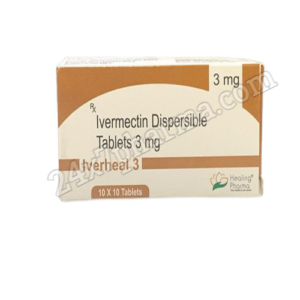
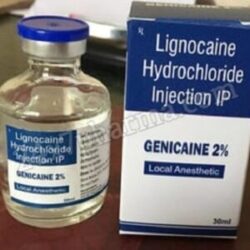
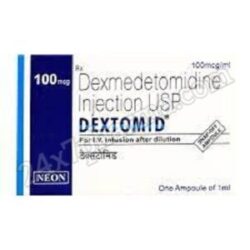
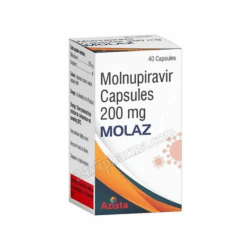

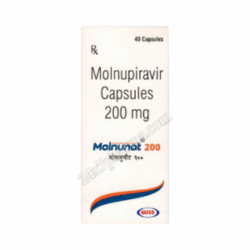
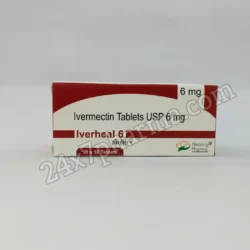
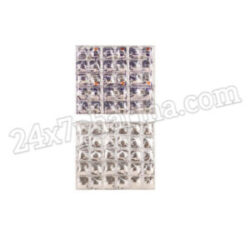
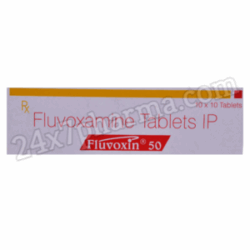
Reviews
Clear filtersThere are no reviews yet.